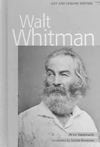Recently Noted:
ALEC GUINNESS: THE AUTHORIZED BIOGRAPHY Talent is a deep mystery, but in Guinness’ case, the secret of his celebrated range is exposed in Piers Paul Read’s new biography, one of the best actor’s biographies ever written. Read makes clear that Guinness’ chameleonic gift at submerging himself under the skin of diverse personalities was nothing less than an essential survival tactic. (David Noh)
––––––––––––––––––––––––––––––
THE COMMITMENT I heard an excerpt on NPR from Dan Savage’s latest tome, and was impressed by the delicacy of his approach to the gay marriage debate. He didn’t rant about right-wing hypocrisy or lampoon gay and lesbian couples spending thousands on ceremonies more appropriate to a debutante. He didn’t roll his eyes at radical queers who reject gay marriage as a capitulation to heterosexual patriarchy. (Chris Schmidt)
––––––––––––––––––––––––––––––
GORE VIDAL’S AMERICA Dennis Altman’s new book is particularly welcome for its warts-and-all treatment of the great man’s life and work. Altman’s book is unique in being a critical assessment of Vidal by a writer who, like his subject, is left-wing and homosexual, and who also has made major contributions to the literature on (homo)sexuality, sexual politics, and social change. (George De Stefano)
––––––––––––––––––––––––––––––
THE LIFE OF POETRY Muriel Rukeyser—lesbian, feminist, Communist, activist, and most of all poet—was the author of 15 volumes of poetry, plays, children’s literature, and biographies, and 10 years ago her landmark book was reissued by Paris Press. (Betsy Andrews)
––––––––––––––––––––––––––––––
MOTHER OF SORROWS This is an arresting collection of stories, a refreshment of tellings, by Richard McCann. The stories are not rendered in the deadening and consumer-oriented rubrics of thick description, but rather in the fleet and sometimes strophic manner of the ode. This collection could not conceivably have written itself; it could not and would not have voluntarily relinquished for inspection its many troubled and troubling secrets. (James McCourt)
––––––––––––––––––––––––––––––
THE ONLY BUSH I TRUST IS MY OWN “The Only Bush I Trust Is my Own” is not a feminist critique of the White House, as the title suggests, but a light-hearted rant about everything from airport security to coprophilia, or getting off on defecation. At any rate, Periel Aschenbrand’s funny little book is like sitting down to coffee with an artsy, sardonic, native New Yorker friend. (Sheila Cosgrove)
––––––––––––––––––––––––––––––
PHALLOS Enigmas fill the ancient world––a turtle bests Achilles in a foot race; Zeno’s arrow never reaches the target; the Sphinx dares the traveler to name what animal possesses a different number of legs during different parts of the day. Samuel R. Delany’s latest novella is centered on this tradition of ancient enigmas. Not riddles, but enigmas. Riddles are meant to be solved. (Stefen Styrsky)
––––––––––––––––––––––––––––––
Raising Boys Without Men Dr. Peggy Drexler addresses the much-debated but little-researched subject of same-sex and single-parent households and concludes that lesbian and single moms are producing the “next generation of exceptional men.” The book marks the first in-depth, scholarly study on the matter. But, while debunking myths, Drexler also reinforces many of the stereotypes she presumably wishes to challenge. (Eileen McDermott)
––––––––––––––––––––––––––––––
THE SECRET LIFE OF OSCAR WILDE Neil McKenna’s biography reveals for the very first time how Wilde was a militant precursor of the modern gay liberation movement long before his famous speech from the dock in defense of “the love that dare not speak its name.” This extraordinary book also gives an entirely new and revealing portrait of Wilde’s sexuality. (Doug Ireland)
––––––––––––––––––––––––––––––
Specimen Days Michael Cunningham’s novel is an experiment, and a challenge to what is considered “literary fiction,” but conventionally arranged—three novellas each revolving around a trio of New Yorkers. Presiding over each, endowing them with shape and connection, is the poetry and life of Walt Whitman. The structure is similar to “The Hours,” but Whitman’s presence never seems essential the way Virginia Woolf was to “The Hours.” The parallels Cunningham sets up in “Specimen Days” seem contrived rather than the story’s natural outgrowth. The reader knows, expects, and is ultimately unimpressed. (Stefen Styrsky)
––––––––––––––––––––––––––––––
gaycitynews.com


































